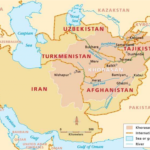This has been a most interesting week in the nation we love. From the raid on the MQM headquarters to the release of the confessionals of Saulat Mirza and Uzair Jan Baloch, the week has been turned on its head, flipped over and shaken for good measure. But nothing comes close to the reporting of the Khyber-2 operation that was ongoing from Thursday until now.
The operation started with a complete media blackout, nothing being said on any channel of the battle or the background to the importance of the area. Rather, many were left to make up their own theses on what was happening and social media was full of rumor-mongering. From the body counts to the identity of a High Value Target (HVT) presumed dead, the Internet was abuzz with speculation. Then, it happened.
One media channel broke the story that Mullah Radio was dead, then another, and another. Social media started to repeat the information and congratulations were shared for the presumed “gift” on Pakistan Day from the Pakistan Army to the nation. Throughout all the reporting, ISPR, the Pakistan Army’s media cell, was eerily silent. Known pundits close to the military were not reporting the same information as the media outlets. There was an actually division between perception and reality, which is commonplace between our domestic media and the people of Pakistan.
We would love to pretend that this is the first time an occurrence like this has happened, but it’s just not the case. The Pakistani media, in the battle for ratings and viewers, elevates non-stories and unconfirmed rumors to breaking news, sometimes shaking the national conscience. Let me take you through some of the examples.
When Baitullah Mehsud was supposedly hit in a US drone strike, the media was reporting that the TTP leader was dead. The TTP itself was denying the story, yet the media continued to report a rumor. The next day, Baitullah Mehsud would appear before the cameras of the same media, laugh and say, “The reports of my death have been greatly exaggerated.” This happened 4-5 times before he was finally neutralized. And the TTP confirmed the story immediately as well as announced a Jirga to select a new leader.
You would think they would have learned from that…
Yet, when Hakeem Ullah Mehsud became the new leader and was targeted by drone strikes multiple times, the media was quick to report the story. Again, without confirmation or a source willing to go on camera. The same process occurred.
Still haven’t learned…
During the dharnas, the media went crazy reporting that the Chief of Army Staff had stepped forward to be a mediator between the two parties. Every media channel started talking about how the government had given up its power to the Army, a special joint session of the Parliament was called to berate and degrade the armed forces for overstepping their ambit. Only to have a tweet from ISPR shatter their position, well, for a moment at least. The session of Parliament still met, the Army was still berated, the Prime Minister was questioned for even daring to consider such an equation. All while the ISPR had already said, no such proposal had been made.
But that doesn’t matter in the game for eyeballs on TV screens. The truth is lost in the ratings game.
In the rest of the world, respectable media organizations demand at least 2 confirmed, well-placed, trusted, known sources for any story before they will report it. They will check and re-check the facts against other information to make sure that they have it right before the script is written, the make up put on and the camera turned red. That’s what journalism is in the true sense. But that’s not journalism in Pakistan.
In Pakistan, the Prime Minister has left his home in Lahore to visit a market, all the channels break to covering the convoy as it races through the streets, just to catch the Prime Minister asking the price of a potato. Someone passes a memo to a journalist and whispers, “Report it,” and we are off to the races on a story that has nothing of importance for the nation. But we are told for hours that this is all that matters today, until someone finds something else and it becomes the focus.
And the media channels has no shame is telling us that they were the first to report a story, with cleverly designed graphics and a time clock showing that they were first. It would be great if they would also tell us how accurate they were with the story when they broke it first.
As someone who writes fictional novels, Pakistan’s media is a fantastic thriller that plays out on our screens 24 hours a day, 7 days a week. It has all the twists and turns, the dark shadowy characters and the white knights that save the day. But dare it say, it is more fictional than the novels that I write, more geared to galvanize a fear and hatred in the national soul than report factual news.
Oh, wait.. the media is breaking another story… let’s see how this chapter ends.
This article originally appeared in The Nation newspaper.
Syed Khalid Muhammad, the Founder and Executive Director of CommandEleven, brings over three decades of leadership experience, guiding organizations globally in the realms of security, technology, marketing, and management. Notably, he authored "Agency Rules: Never an Easy Day at the Office," a pioneering espionage novel published in 2013. This novel holds historical significance as the first English-language espionage novel written by a Pakistani, achieving international bestseller status and currently available on Amazon.
Furthermore, Syed Khalid Muhammad has made notable appearances on several international TV channels, providing insightful analysis on security and geopolitics.
Since the establishment of CommandEleven in 2015, Khalid has expanded his expertise to encompass analysis, risk and threat assessment, and consultancy in the fields of terrorism, counter-terrorism, counterintelligence, geopolitics, and cognitive warfare. Within CommandEleven, he has successfully cultivated a comprehensive human and electronic intelligence network spanning the Indian subcontinent. Continuously growing, this network extends into various conflict zones globally, providing CommandEleven with actionable, real-time intelligence that forms the foundation of its analytical endeavors.
CommandEleven currently serves multiple clients, including corporate giants, by assisting them in analysis related to security, threat assessment, and threat mitigation strategies in Pakistan and Afghanistan.









